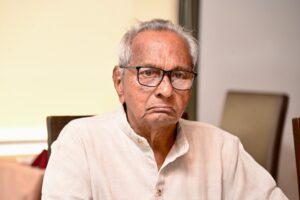Doubts surround death of Syrian refugee in Polish detention center
WARSAW (AA) – The Polish Border Guard on Thursday publicly admitted the death of a Syrian man at a detention center for refugees in southwestern Poland, but almost a month after the man died.
The refugee of Syrian origin, Mahmoud Ryad Albana, died on the night from March 16 to 17 after seven days in the Guarded Center for Foreigners in the city of Przemysl, Piotr Zakielarz, the spokesperson of the Bieszczady Border Guard Unit, told Polish Press Agency (PAP).
However, Polish activists, who help refugees from Africa and the Middle East coming into Poland via Belarus, say they were the first to inform about the man’s disappearance from the center after he had been complaining of being sick for several days.
“He was denied medical help for several days despite his friends begging for it. Then, he simply disappeared,” Maria Ksiazek, a psychologist who works with the refugees in Polish camps, told Anadolu. “The authorities only informed about his death because we intervened to identify the man.
“Inmates said violence was used against him, he was kicked in the stomach when he was already squirming on the ground in pain,” Ksiazek said.
“These are the allegations and all needs to be confirmed, but my fear is that the investigation will not be public and not of a high standard,” she added.
“The witnesses are still being held in the centers, may well not want to repeat the allegations for fear of reprisals,” the psychologist said.
Family wants body of Syrian refugee home
Karolina Mazurek, who also operates as an activist, said the border guards want to deport Albana’s friend – and potentially a crucial witness – back to Syria.
The family was not informed of what had happened to Albana, she added. “I spoke with Mahmoud’s brother and his wife, with whom he has an 18-month-old child living in Aleppo. They want the body home.”
According to Zakielarz, the Syrian embassy was notified about the death.
“The man lost consciousness and, despite resuscitation activities with the use of a defibrillator . . . it was not possible to restore his vital functions,” Zakielarz said.
A spokeswoman for the district prosecutor’s office in Przemysl, Marta Petkowska, told PAP on Wednesday that proceedings had been initiated, as usual in such cases, on establishing whether this was a case of unintentional manslaughter.
“The autopsy of the young man’s body did not give an answer as to the cause of his death. No injuries or marks, internal or external, which could have caused his death were found on his body. Samples have been taken for histopathological examination and we are waiting for the results,” Petkowska told PAP.
She added that other foreigners staying in the center were being questioned as witnesses in the case. “Their testimonies do not indicate that there was any incident involving the deceased man,” the prosecutor noted.
Allegations of maltreatment
Six centers in Poland – Ketrzyn, Bialystok, Lesznowola, Biala Podlaska, Krosno Odrzanskie, and Przemysl – often hold people who often should not be there, according to Amnesty International. Wedrzyn and Czerwony Bor facilities have been closed since the refugee crisis started in August 2021.
Amnesty said there are people held there who have been subjected to violence, people with disabilities applying for international protection, and minors staying in Poland without parental care.
A report by the European Anti-Fraud Office, which tracked abuses by the EU’s border agency Frontex, was leaked last April, showing violations of the law, with refugees kept with a dozen or so people in one room, unable to leave of their own free will and with limited contact with the world, including doctors, psychologists and lawyers.
In January, four Iraqi migrants held at a detention facility began a hunger strike to protest the conditions of their detention. They had been held at Lesznowola, east-central Poland, for 17 months, Polish news site wyborcza.pl reported.
“We are in a decidedly bad shape when it comes to respecting human rights. We see oppression, we see inhumane treatment. There is political approval for this,” said Hanna Machinska, who until the end of December was Poland’s deputy commissioner for human rights.









